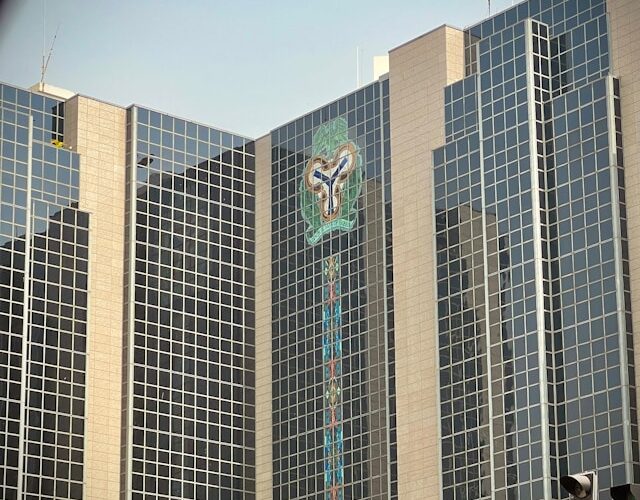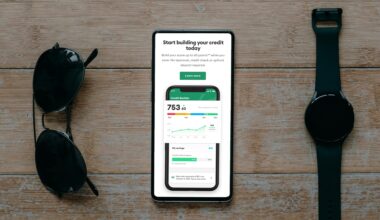If you’re thinking of borrowing ₦100,000 from a Nigerian bank, you’re not alone — many Nigerians turn to this amount for business start-ups, salary bridging or emergency needs. But before signing on the dotted line, there are hidden elements that banks prefer you don’t scrutinise too closely. In this post, we’ll walk through what you should know, ask and negotiate — so you can walk away informed rather than surprised.
Understanding the true cost of borrowing ₦100,000
1. Interest rates and what tends to be omitted
One of the most obvious costs is interest. Yet what banks often don’t emphasise is how many additional charges or how the rate is calculated in practice. For example, the average personal loan rate in Nigeria ranges from about 7% to 36% depending on borrower profile. (nairaCompare)
But beyond the headline rate, you also should look out for:
- Flat rate vs reducing-balance: A flat rate means you pay the same interest on the original principal each period, even though your outstanding amount drops. That effectively increases your effective rate.
- Insurance and processing fees: Some banks tack on an insurance fee or other charges. One case: a provider charged an 8% flat interest + a 5% insurance fee on each transaction. (smartloans.ng)
- Hidden administrative/legal fees: Under regulation, banks are required to disclose terms; still many borrowers don’t realise the cumulative effect.
Table: Example cost components for a ₦100,000 loan
| Component | Typical amount / % | Notes |
|---|---|---|
| Headline interest rate | e.g., 15% p.a. | Bank advertises this rate |
| Insurance fee | e.g., 5% of loan upfront | Adds to cost of borrowing |
| Processing/administration fee | e.g., ₦2,000-₦10,000 | Sometimes hidden or rolled into loan |
| Collateral/guarantee requirements | Varies | May limit your flexibility |
| Effective annual percentage rate | Could exceed headline rate | Because of flat rate or fees |
2. Tenure, repayment frequency and what you really pay
A ₦100,000 loan might seem manageable, but how long you have to repay and how frequently the payments come can dramatically impact your cash-flow and stress levels. Some banks might have:
- Very short tenors (e.g., 30/60/90 days) meaning large repayment chunks. (First Bank Nigeria)
- Repayment obligations via salary domiciliation (for salary earners), meaning the bank might debit your account automatically, reducing flexibility.
- Prepayment or early settlement penalties or absence of transparency around them.
What banks don’t highlight – the hidden strings attached
3. Collateral and documentation that bite
Even for seemingly “small” loans like ₦100,000, banks may require:
- Personal guarantee or surety: Someone must back the loan. (oal.law)
- Signed letter of lien/set-off: This gives the bank the right to debit your account or seize assets if you default. (oal.law)
- The full range of KYC and documentation: According to one guide, you’ll need Bank Verification Number (BVN), ID, bank statements, proof of income, etc. (Earthbond | Nigeria)
4. Banks’ incentive structure
It’s not just about you taking a loan — banks profit from certain hidden mechanics:
- Flat rate means more interest paid overall compared with reducing-balance.
- Insurance/administration fees generate revenue even if you don’t default.
- Automatic salary deduction gives banks security; you might lose flexibility.
5. Borrower risk seldom fully explained
Many borrowers underestimate their own risk. The regulatory body Central Bank of Nigeria (CBN) sets guidelines, yet the consequences of default are still significant:
- Loss of collateral or assets pledged. (Central Bank of Nigeria)
- Negative impact on your credit profile, making future borrowing harder or more expensive.
- Possible legal action or enforced salary deduction.
Why ₦100,000 becomes more expensive than you expect
Let’s break down some real-world “gotchas”:
- Borrow ₦100,000 at a 15% flat rate for 12 months = ₦15,000 interest. But if there’s a 5% insurance fee upfront (₦5,000) and a ₦3,000 processing fee, you’re really paying ₦23,000+ in fees and interest before you pay the first instalment.
- Suppose the repayment frequency is monthly; that’s about ₦8,000 per month for 12 months (given the extra fees). If you expected ₦2,500 per month, you’re caught unprepared.
- Further risk: if you miss a payment, banks often apply standard default charges + additional interest for late payment.
The effective cost can easily approach 25%-30% or more of the amount borrowed, especially once all charges and risks are factored.
Smart questions to ask before accepting your loan
Before you sign, here are the questions you should ask the loan officer and demand clear answers:
- What is the effective annual percentage rate (APR) after all fees and charges?
- Is the interest flat or reducing-balance?
- What are the exact fees (processing, insurance, legal, documentation) I must pay upfront?
- What is the repayment schedule — monthly, quarterly, what amount, and when is the first payment?
- What happens if I pay early — is there a discount or penalty?
- What are the consequences if I miss one payment — how much is the late fee?
- Do I need to provide collateral, guarantee or sign a letter of lien?
- Will the bank debit my salary or domiciliate it — am I free to change my account?
- How will this loan impact my credit profile (via BVN checks and shared credit information)?
- Can I review the full loan agreement/offer letter before I commit?
How to make the ₦100,000 loan work in your favour
Here are some strategies to turn the loan into a smart tool, not a trap:
- Borrow only what you can repay: Calculate monthly cash-flow and ensure you’re comfortable with the payment.
- Shorter repayment term: If possible, choose a shorter term to reduce total interest.
- Avoid unnecessary fees: Ask if any fees are negotiable, or see if you can waive insurance or guarantee costs.
- Use the loan for income-generating activity: Especially if you’re self-employed or business-oriented — ensure the loan enables you to earn more than it costs.
- Keep documentation: Ask for the offer letter, repayment schedule, agreement copy.
- Make timely payments: Protect your credit profile and reduce stress.
- Review alternatives: Some microfinance or fintech lenders may offer more transparent terms — compare before you commit.
Why banks may prefer you not dig too deep
From the banks’ perspective, lending is a business. They profit from interest, fees, and the security of salary domiciliation. Some systemic points:
- The Nigerian banking system has faced high non-performing loans, prompting banks to rely on higher margins. (Business Post Nigeria)
- Regulation demands disclosure, but enforcement is uneven and borrowers often don’t deeply understand the terms.
- Flat-rate loans make calculations simpler for banks but costlier for borrowers.
- Banks may present services as “quick access” loans, emphasising speed rather than clarity.
Final thoughts: proceed, but do so wisely
Taking a ₦100,000 loan from a Nigerian bank doesn’t have to be a risk-laden move — it can be a bridge, a growth tool, or a lifesaver. The key: treat the process like a business decision, not just a quick fix.
Remember: Read the fine print. Ask the tough questions. Understand what you’re really paying. And make sure the loan improves your situation, rather than burdening you with hidden costs and stress.
By keeping the hidden parts visible — interest calculations, fees, collateral, repayment terms — you’re placing yourself in control. That’s exactly what the banks hope you won’t do.
Unlock Massive Side Hustle: The Side Hustle Paying Americans $5,000/Month With Just AI Tools
The One Online Skill Paying More Than Tech Jobs — With No Degree Required






